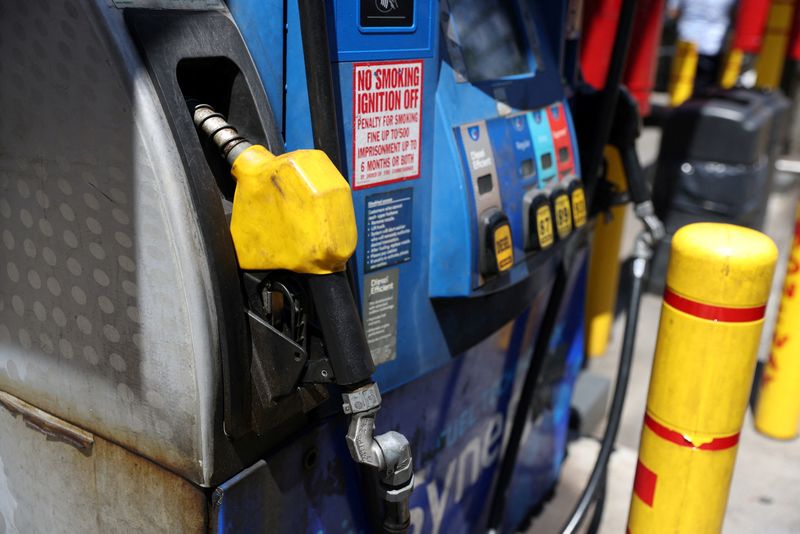
© Reuters. FILE PHOTO: A pump is seen at a gas station in Manhattan, New York City, U.S., August 11, 2022. REUTERS/Andrew Kelly/File Photo
LCO
+0.94%
Add to/Remove from Watchlist
Add to Watchlist
Add Position
Position added successfully to:
Please name your holdings portfolio
Type:
BUY
SELL
Date:
Amount:
Price
Point Value:
Leverage:
1:1
1:10
1:25
1:50
1:100
1:200
1:400
1:500
1:1000
Commission:
Create New Watchlist
Create
Create a new holdings portfolio
Add
Create
+ Add another position
Close
CL
+1.14%
Add to/Remove from Watchlist
Add to Watchlist
Add Position
Position added successfully to:
Please name your holdings portfolio
Type:
BUY
SELL
Date:
Amount:
Price
Point Value:
Leverage:
1:1
1:10
1:25
1:50
1:100
1:200
1:400
1:500
1:1000
Commission:
Create New Watchlist
Create
Create a new holdings portfolio
Add
Create
+ Add another position
Close
By Rahul Paswan
(Reuters) – Oil prices will stall this year as weak economic growth is expected to curb demand and offset the impact of OPEC+ production cuts on supply, a Reuters poll showed on Monday.
A survey of 37 economists and analysts forecast Brent crude would average $81.95 a barrel in 2023, down from June’s $83.03 consensus and current levels of around $85. Brent was forecast to average $83.67 next year.
The global benchmark has averaged around $80 so far this year.
U.S. crude was seen averaging $77.20 a barrel in 2023, down from the previous month’s $78.38 forecast, and $78.25 in 2024.
“We expect the impact of high interest rate levels to start curbing economic growth more strongly over H2 2023,” data and analytics firm Kpler said, maintaining “a comparatively bearish view on the market”.
Central banks, the U.S. Federal Reserve and the ECB, raised interest rates to historic highs this month.
Sluggish growth in top crude importer China has also weighed on oil prices so far in 2023.
However, Chinese stimulus measures and a pick-up in air travel could buoy prices later this year, analysts said.
Global oil demand was expected to increase by about 1-2.1 million barrels per day (bpd) in 2023, led by China.
“China’s economic outlook may continue to disappoint but upside in oil demand is still possible with jet demand recovery from international flights later this year,” said Ajay Parmar, associate director of global oil markets research at HSBC.
Some of the analysts expected supplies to tighten and support oil prices in the latter part of this year after Saudi Arabia and Russia deepened output cuts in July.
“We’re forecasting that the oil market will be in deficit in Q3 and Q4 2023 because of the cuts by OPEC+, which will not be offset by non-OPEC producers,” said John Paisie, president of Stratas Advisors.
Source: Investing.com





























